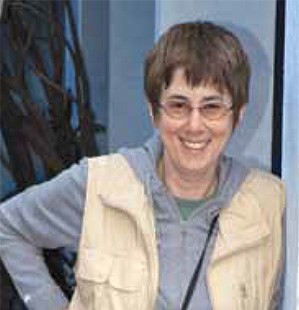
Helen Weingarten’s contributions to social work reflect a commitment to core values entwined in the discipline— problem-solving, connection, integration, relationship. “I’ve always thought of ‘career’ in terms of contributing to the world,” she says. “It never occurred to me to enter a non-helping profession.”
Following a short venture into teaching, Weingarten turned to child welfare service, working under the mentorship of experienced, committed professionals. After earning her MSW, she invested herself in community mental health work in Vermont. “It was excellent work, but I found myself needing an intellectual challenge, to understand things.” She found both challenge and opportunity in the U-M School of Social Work’s joint doctoral program and was hired to teach before completing dissertation work toward her degree in social work and psychology. Professor Emeritus Charles Garvin says that, as a faculty member, Weingarten “brought fresh and unique perspectives, especially to the teaching of interpersonal practice.”
Weingarten’s research unfolded as she examined crisis events such as death and divorce across the life span. From this foundation, she began to “look at those who were proactive, rather than reactive. Specifically, I became interested in discovering what it was that successful conflict managers were doing.” This line of inquiry led her, in the mid-1980s, to pioneer inquiry into how gender differences shape conflict response and management among expert practitioners.
Both Weingarten’s research and teaching emerge out of her interest in translating theory into practical, workaday problem-solving. Weingarten likens the challenges of putting together a course syllabus idea to assembling pieces of a complex puzzle. “I tried to introduce students not only to social science literature but to fiction, poetry, and history.”
Students thrive on this creative approach. “She was the most thought-provoking teacher I had in college; she possesses an innate skill to pull people together from varied perspectives, helping us to really be curious about perspective and think outside the box,” says Heather MacKenzie (’93).
Weingarten’s integrative approach and fascination with practical problem-solving bore practical, crossdisciplinary fruit at the University of Michigan. She not only participated in the founding and direction of the Interdisciplinary Program in Conflict Management Alternatives (PCMA) but also served as founding member of Fairteach and faculty mentor to athletes. “PCMA was an interdisciplinary conflict management group before cross-disciplinary teams were common. Our members came from across the University—the College of Literature, Sciences, and the Arts (LSA), the Taubman College of Architecture and Urban Planning, the School of Social Work, and the School of Natural Resources and Environment. We couldn’t be conflict averse, and we learned to struggle through to resolution.”
In 1989 Weingarten embarked on a hard-earned sabbatical. She spent that historically significant year walking through Italy, teaching at Israel’s Hebrew University, exploring Nepal and India, and encountering the nascent student protests that culminated in China’s Tiananmen Square demonstrations. The year prompted personal, intellectual, and spiritual assessment and reflection.
“It was the extended intercultural contact that promoted a long period of soul searching,” she says. “I came back and the classes I taught included a more community focus. In some ways I came to understand that building my career was less important than living out the values of social work.”
Associate professor emerita of social work since 2000, Weingarten continues to creatively connect social work values and life experience, fulfilling her lifelong service orientation as a docent at the U-M art museum. The program she participates in focuses on engaging children with art. “This will sound funny,” Weingarten muses. “In 1993 I made a presentation to the Dalai Lama. But the preparation time I invest now to teach fourth-grade students about Chinese funerary art is almost as intense.
“I see myself as a lifelong learner. Currently, my learning comes through introducing children to the delights of the University of Michigan’s Museum of Art. The relationship between teaching and learning is a reciprocal one, and right now the learning curve is steep. The challenge of motivating children to open their hearts and minds and be inspired by art is an intellectual challenge and a delight.”
—Elizabeth Leimbach Zambone is a freelance writer and editor living in Virginia.